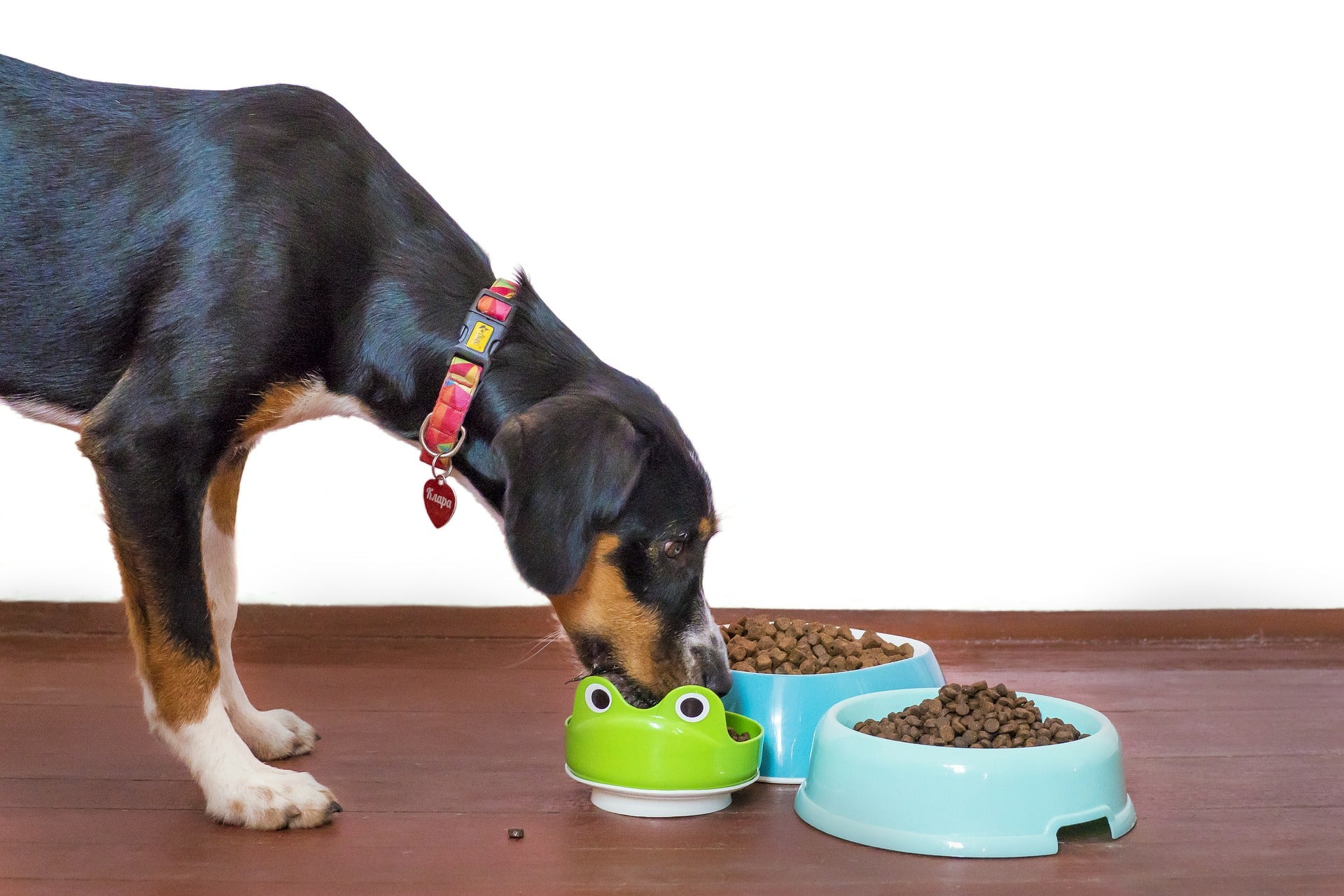Why Won't My Dog Eat His Food : Possible Causes & Solutions
If you have a picky dog, nothing is more important than getting him to eat. Even though most dogs can go a couple of days without food with no significant bad effects, it is best to solve the problem and get them to eat as early as possible.
Just like in people, there are a variety of reasons dogs might refuse to eat. Below are the possible causes and appetite solutions:
1.Over Treating & Table Scraps
Some dogs are smart. They know that they will get tasty snacks anytime they give you their puppy dog eyes, then they’ll quickly learn to ask for those. If your dog is often exposed to eating table scraps, he may start to hold out on his dog food, thinking that if he waits, he could get something better than his dog food.
What we should notice is that your dog needs to eat nutritionally-balanced food in proper amounts every day to maintain health. But table scraps and excessive treats only cause weight gain and don’t provide balanced nutrition. If over-treating or table scraps is the case, you need to make some changes and stop reinforcing the bad behavior.


2.Over Feeding
Check with your veterinarian. In some cases, dogs aren’t hungry because they are fed too much. If your dog is a normal weight, has good coat quality and high energy levels, but he doesn’t eat very much, then check how much you are feeding him. You might be feeding him too much. You can turn to your veterinarian or find an online calorie calculator to figure out how much you should feed your dog.
3.Bored & Poor Dog Food Choices
Our dogs are fed with dog food as a sole diet over the years. And we seemed to believe that dogs don’t need any variety in their diets. We also seemed to have forgotten the fact that variety is not just about flavour. Every ingredient contains different types and levels of essential nutrients. If your dog always eat the same formula over and over, it will lead to missing or limited nutrition, your dog may also get tired of the same formula.
Make sure the food you are offering your dog is safe, nutritious and consistent. If you want to try a different dog food brand or flavor, make the switch gradually and mix some of the old food with the new food over 3-4 days until your dog is only eating all new food. Don’t keep changing the food constantly as this can upset your dog’s digestive system.
4.Behavioral Problems
Some dogs may stop eating because of behavior problems. If you have another dog or pet in the house, your dog may be reacting to that pet by refusing to eat his food. Your dog may also be enjoying the attention given when he doesn’t eat his food. He may also refuse to eat if another dog steals his food or growled at him when he eats. If your dog prefer to eat alone, he may refuse to eat with another dog around.
Staying out of the area while your dog eats. Give him a quiet, safe place to eat alone and keep him away from distractions or competition of other pets. You can also teach your dog to eat at certain regular times by offering his food for a short period of time. Gradually he can rely on a comforting routine
5.Change In Routine & Unfamiliar Surroundings
A change in routine and place may also upset your dog’s appetite. If you change the time you feed your dog, change the time you take him to walk or potty, or make serious changes in your household such as adding a family member, your dog can easily stop eating. If your dog’s appetite was fine until you take a vacation with him or move to a new home, you dog might refuse to eat either. Some animals will even get sick when they come to a new, unfamiliar place while others become nervous or uncomfortable.
If you have to change their routine or take them to a new place, it’s best to make the change gradually. Also make sure that your dog feels secure and comfortable.

6.Illness and Disease
Dental disease may also upset your dog’s appetite. If a dog refuse to eat, he may have something in his mouth that causing pain. Make sure to have him checked for a bad tooth, a foreign object, or even an oral tumor.
If you find that your dog won’t eat food, firstly make sure your dog is in good general health. If your dog has always been a good eater and suddenly develops a diminished appetite, this is something to be concerned about immediately. If he has lost weight recently or develops vomiting or diarrhea as well, take him to the veterinarian as soon as possible. Aged Dogs are likely to begin losing their appetite as they become less active. Make sure you have schedule regular check-ups to make sure your old dog is maintaining a healthy weight.
Once any problems have been diagnosed and treated, your dog’s appetite should return quickly.